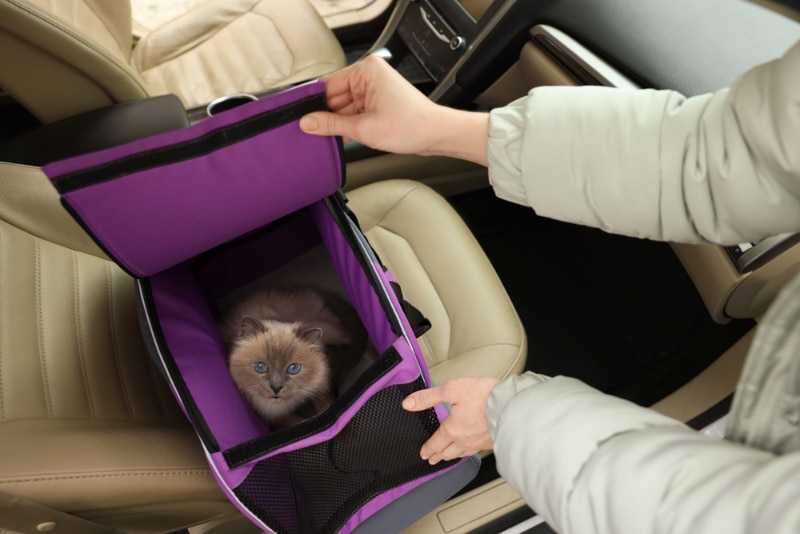It’s hard enough for cat owners to get their pets inside their carriers and to the vet for an annual check-up, let alone embark on a long road trip with them. If you find yourself staring down the barrel of a multi-hour road trip with your cats in tow, you’re probably feeling more than a little stressed. Cats aren’t particularly known for their love of car rides, but that doesn’t mean you can’t have a successful road trip with yours as passengers.
Read on to find our 10 tips on how to travel with cats successfully.
Before You Go: Important Considerations
We recommend you do several things before you even think about loading up your vehicle for your road trip.
Get Your Car Serviced
The last thing you need to happen in the middle of a road trip is for your vehicle to break down, especially if you’re traveling with already stressed cats. Take your car to the mechanic for a hood-to-trunk safety check-up.
Have Your Cat Examined
Your car isn’t the only thing that should be evaluated before going on a road trip. Take your kitty to the vet for their annual check-up. This is also a good time to have your pet microchipped if they aren’t already and to ask your vet if they have tips on making your trip successful. You should also see if your kitty needs any vaccinations or special documentation before you travel.
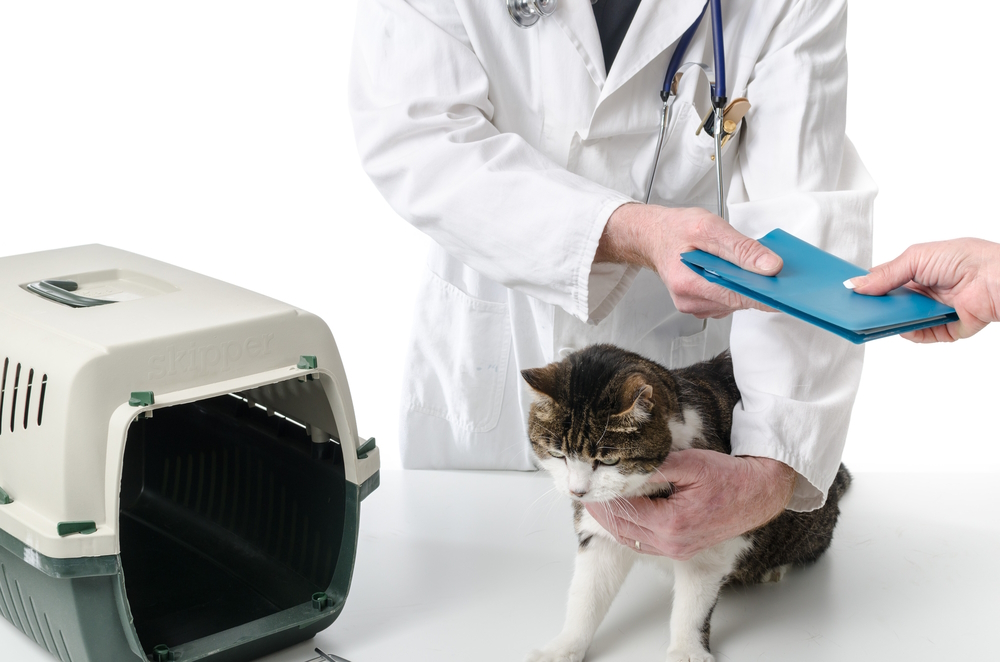
Choose the Right Carrier
Your cat will be safest in a carrier during your road trip, but not all carriers are created equal. You’ll want to choose one with sufficient space so your cat can sit and lay comfortably. Additionally, it’ll need plenty of ventilation and breathability to ensure proper airflow.
Don’t Forget the Essentials
Though your pet may be too scared to eat, drink, or even use the litter box on your road trip, you’ll still need to bring these items. You can find litter boxes and bowls designed specifically for travel, or bring their usual ones from home.
We also recommend bringing your cat’s medical documents, like vaccine certificates and rabies vaccination tags.
The 10 Tips for a Successful Road Trip With Cats
1. Desensitize Your Kitty to Their Carrier
Your cat will feel much more comfortable in their carrier if they’ve had some desensitization training before your departure date. The sooner you begin training your kitty to be comfortable in their carrier, the better.
To successfully introduce your cat to their carrier, make it a part of their environment all the time. This way, they can get used to its presence and learn not to fear it. Help them create positive associations with the carrier by spritzing some Feliway calming pheromone on a blanket and putting it inside. You can also use catnip or treats to encourage your kitty to check out their carrier.
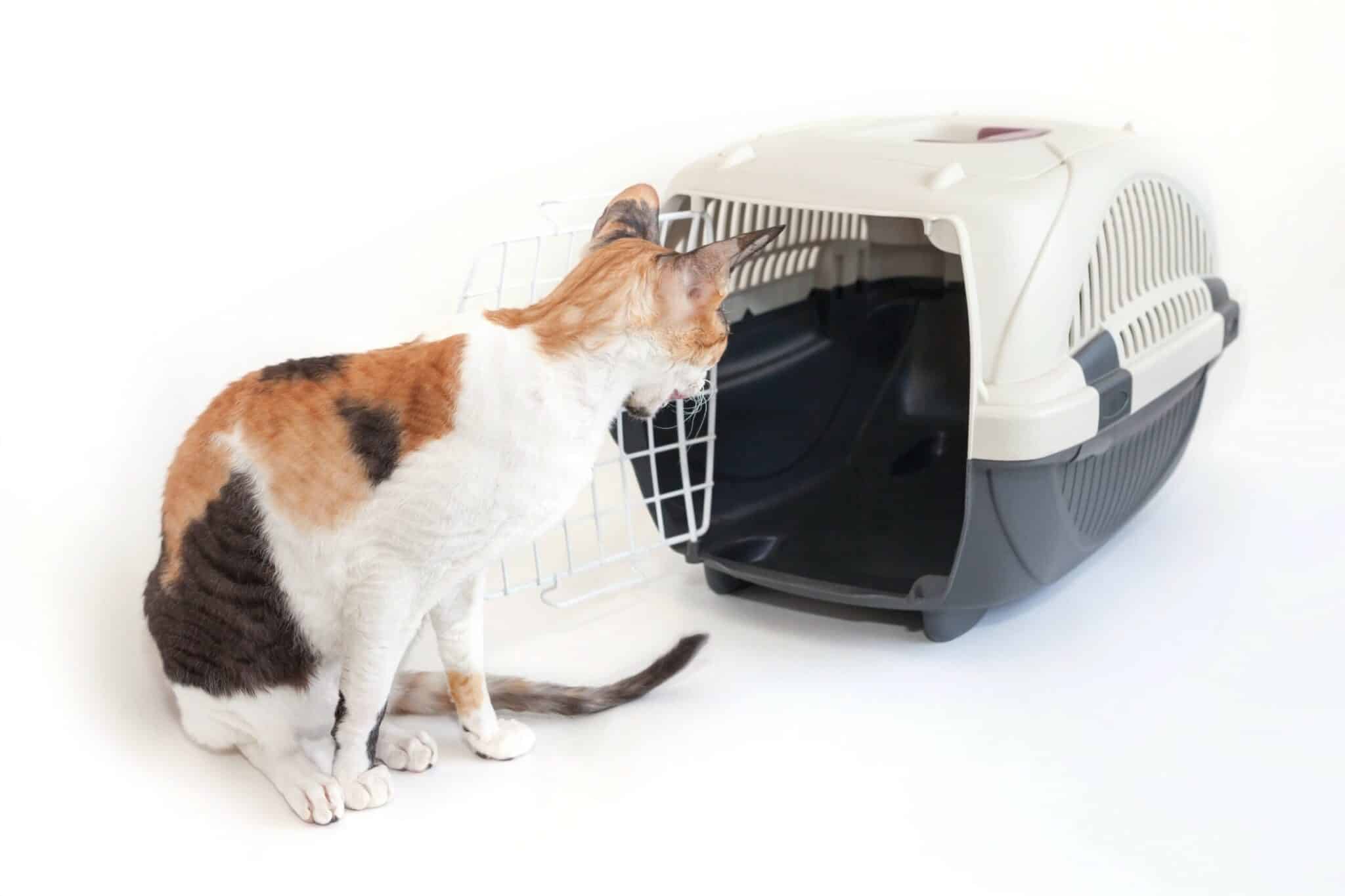
2. Desensitize Your Kitty to Your Vehicle
Once your pet is comfortable in their carrier, you can take them to the car. The first few times you take them to your vehicle, sit in the backseat with your pet while the car is off. Open the carrier door partially and insert your hand to pet or play with them. Offer plenty of treats and praise and repeat these steps for several days until your pet is comfortable being in their carrier in the car.
Add a little more to your training sessions each day. Start the car one day and sit in the backseat with your kitty so they can get used to the sounds and feel of the running vehicle. Then, go for a short drive around the block. Extend your driving distance each time.
3. Take Breaks as Necessary
Plan to take regular breaks if you’re embarking on a long road trip. These breaks will allow you to gauge how your pet is doing while allowing them some time outside of the carrier to have some food, water, and a litter box break. If you’ll be letting them outside the vehicle, use a leash and harness to prevent escapes.
Are you looking for the perfect cat harness? We suggest Hepper's Cat Harness & Leash Set, which includes a nicely designed, machine-washable harness made from soft, sturdy velvet and mesh.
This harness is easy to put on and take off and features reinforced stitching, reflective stripes, and quick-release buckles. This set also includes a great leash made from durable nylon climbing rope. At Catster, we’ve admired Hepper for many years and decided to take a controlling ownership interest so that we could benefit from the outstanding designs of this cool cat company!
4. Consider Covering the Carrier
Use a light blanket to cover your cat’s carrier if you believe they are too stressed, in need of privacy, or if the external stimuli are too much for them. Some cats can get car sick if they’re looking outside while the vehicle is in motion, so having a blanket on hand is a good idea.
5. Talk to Your Vet About Medication
When you take your cat to the clinic for their pre-road trip wellness check, you may wish to talk to the vet about medication to help alleviate travel-related stress and anxiety. There are several options your doctor may recommend, depending on your cat’s health status and the length of your trip.
Two years ago, I embarked on a 16-hour road trip with my four cats when my family and I moved across the country. Our veterinarian prescribed us gabapentin, which was helpful on our long trip. All four cats became drowsy once the medication kicked in, leading them to nap for much of the journey.
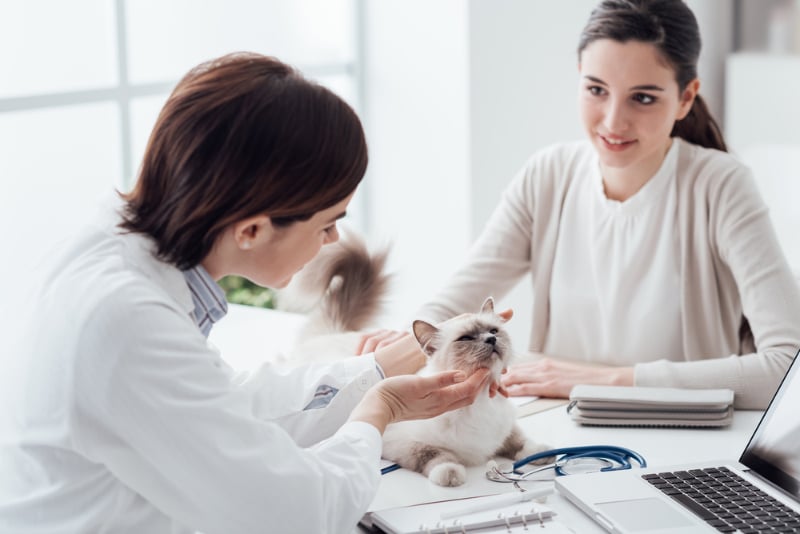
6. Use Puppy Potty Pads
Even the most fastidious and well-trained kitty can have an accident when they’re stressed out and anxious and stuck in a scary place all day. Line your cat’s carrier with puppy potty pads to absorb any accidents your kitty may have during your road trip.
7. Bring Creature Comforts From Home
Cats are territorial little things that love to rub their scent on anything they deem “theirs.” Any time you see your kitty rubbing up on objects like furniture or even your leg, they’re marking their territory. Having their scent on things in their space gives them comfort, so it’s recommended that you bring some of their favorite creature comforts from home along for your road trip. Pack their favorite bed, toy, or blanket so they always have something that smells like home.
Our Favorite Cat Toys Right Now Here are a some of our favorite toys, each catering to a variety of senses and play preferences. Which one will your feline fancy? At Catster, we've admired Hepper for many years, and decided to take a controlling ownership interest so that we could benefit from the outstanding designs of this cool cat company!
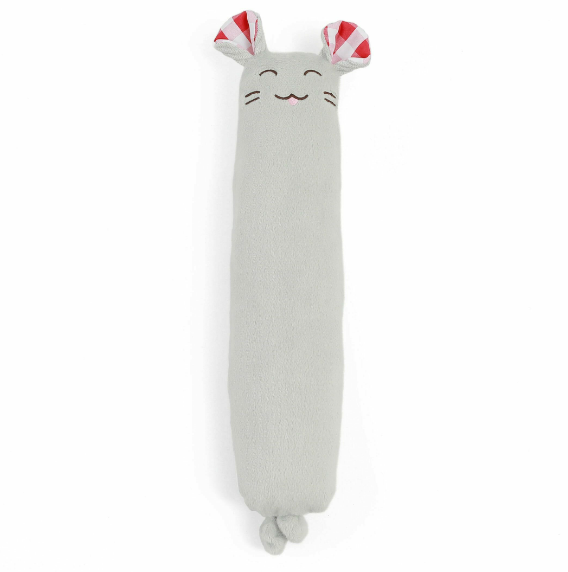
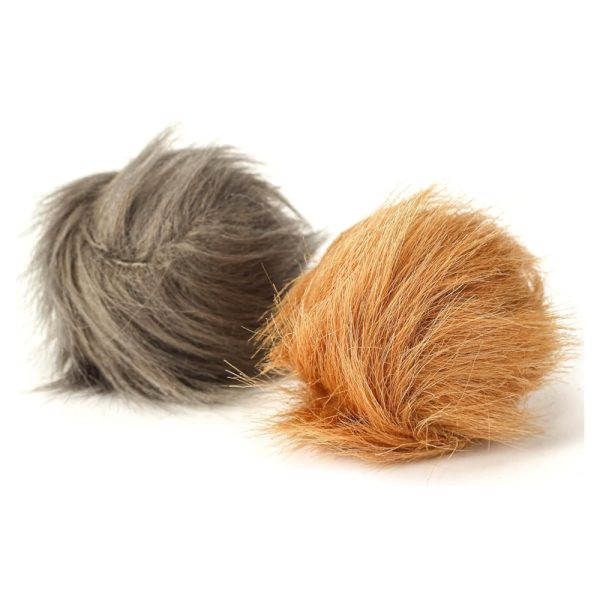
Hepper Plush Mouse Kicker Toy
Hepper Furball Toy Set
Multisensory
Encourages self play
Large
Durable
Lightweight
Set of 2
8. Set the Mood
The atmosphere in your vehicle can determine how successful your road trip with your kitty is. Keep the temperature comfortable to ensure your kitty doesn’t overheat or become too cold. Keep the music volume low, and consider playing calming tunes until your pet has had a chance to get comfortable in their carrier.
9. Never Leave Your Cat Unattended
If you’re stopping for a bathroom break or stretching your legs, we highly recommend bringing your kitty. This is especially true if you’re traveling during the warmer months of the year, as your vehicle will get very hot very fast, which puts your kitty at risk of heat stroke. You might consider taking turns if you’re traveling with another human to ensure someone is always in the car with your cat or bringing a backpack you can put your kitty into when you need to leave the vehicle.
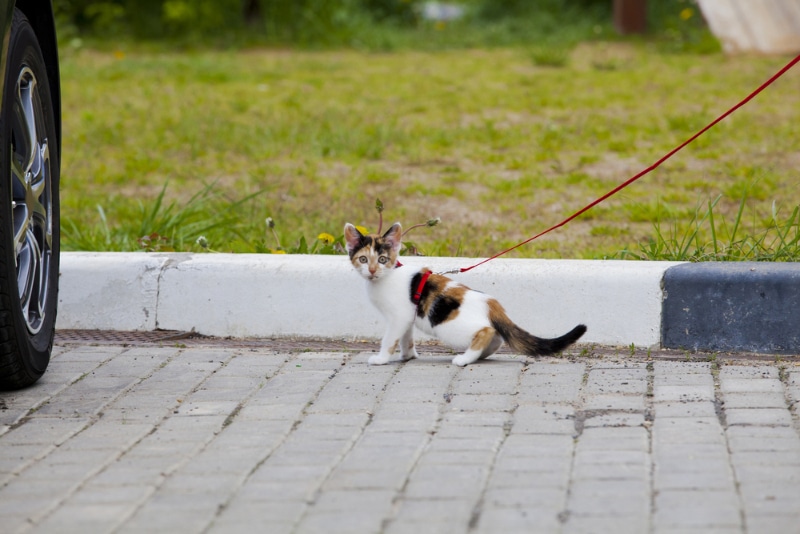
10. Unwind When You Arrive
When you arrive at your destination, your goal should be minimizing your cat’s stress. Please leave them in their carrier for the first little while, at least until you’ve had a chance to check the surroundings to ensure there are no escape routes for your kitty to take. Set up their litter box and food and water bowls, and show them the way there once you’ve let them out of the carrier. Do not bombard your pet at this point; give them time to adjust to their new surroundings.
Change can be extremely stressful for cats, so once they’ve had time to acclimate to your destination, give them lots of extra praise, attention, and treats for a job well done.
Final Thoughts
While road-tripping with cats is generally more stressful than with dogs, it’s not impossible. With time, patience, and plenty of planning, a successful journey with your cats is within the realm of possibility. We recommend starting your desensitization training as soon as you know you’ll be traveling to give yourself the best shot at a successful trip.
Featured Image Credit: New Africa, Shutterstock
Contents
- Before You Go: Important Considerations
- The 10 Tips for a Successful Road Trip With Cats
- 1. Desensitize Your Kitty to Their Carrier
- 2. Desensitize Your Kitty to Your Vehicle
- 3. Take Breaks as Necessary
- 4. Consider Covering the Carrier
- 5. Talk to Your Vet About Medication
- 6. Use Puppy Potty Pads
- 7. Bring Creature Comforts From Home
- 8. Set the Mood
- 9. Never Leave Your Cat Unattended
- 10. Unwind When You Arrive
- Final Thoughts

